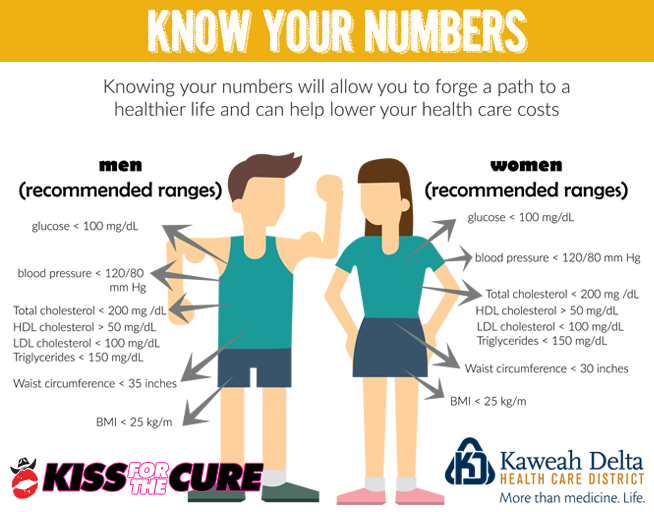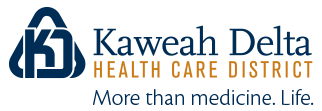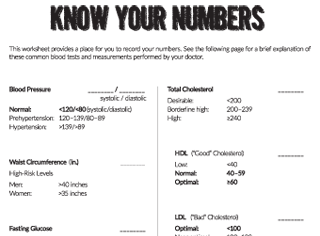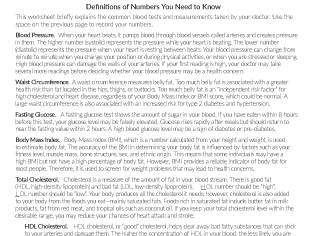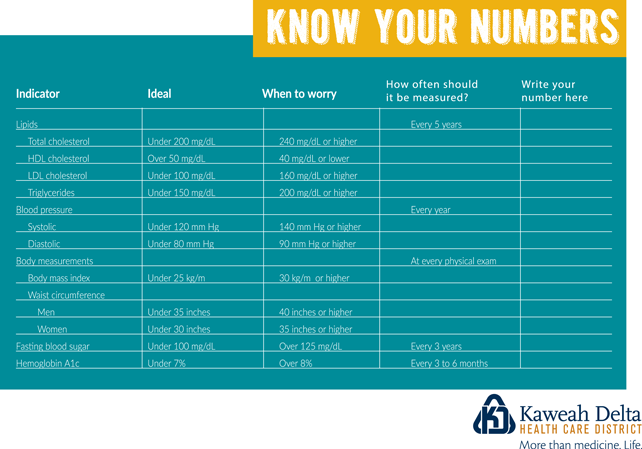Did you know if you have too much cholesterol in your blood, it can build up on the walls of your arteries and form blockages which can lead to heart attacks, heart disease, and stroke? Hi, this is Jody Jo. Kaweah Delta would like to remind you of the importance of screening your cholesterol. Ask your doctor to do a simple blood test to check your cholesterol levels. Kaweah Delta encourages you to eat a healthy diet, exercise regularly, maintain a healthy weight and do not smoke. To learn more, go to KaweahDelta.org
SPONSORED BY:
NATIONAL CHOLESTEROL EDUCATION MONTH
- What is cholesterol? Cholesterol is a waxy, fat-like substance that your body needs. But when you have too much in your blood, it can build up on the walls of your arteries and form blockages. This can lead to heart disease, heart attack, and stroke (some of the leading causes of death in the US.
- There are two kinds of cholesterol: high-density lipoprotein (HDL) and low-density lipoprotein (LDL). HDL is also called \”good\” cholesterol. LDL is called \”bad\” cholesterol. When we talk about high cholesterol, we are talking about \”bad\” LDL cholesterol.
- Seventy-one million American adults have high cholesterol, but only one-third of them have the condition under control.
- Screening (KNOW YOUR NUMBERS) is the key to detecting high cholesterol. Because high cholesterol does not have symptoms, many people do not know that their cholesterol is too high. Your doctor can do a simple blood test to check your cholesterol level. Adults, age 20 and older, are encouraged to have their cholesterol checked at least every 5 years, more often if you have had high cholesterol in the past, are older than 45 (men) or 50 (women), or are at risk for heart disease or stroke.
Prevention:
- Eating a healthy diet. Avoid saturated fats and trans fats, which tend to raise cholesterol levels. Other types of fats, such as polyunsaturated fats, can actually lower blood cholesterol levels. Eating fiber also can help lower cholesterol.
- Exercising regularly. Physical activity can help lower cholesterol. The Surgeon General recommends that adults engage in moderate-intensity exercise for 2 hours and 30 minutes every week.
- Maintaining a healthy weight. Being overweight or obese can raise your cholesterol levels. Losing weight can help lower your cholesterol.
- Not smoking. If you smoke, quit as soon as possible.
What is a normal/good cholesterol level?
- Overall cholesterol level less than 200 mg/dL
- LDL “bad” cholesterol less than 100 mg/dL
- HDL “good” cholesterol should be 60 mg/dL or higher
VIEW THESE USEFUL CHOLESTEROL PAMPHLETS
DOWNLOAD THE KNOW YOUR NUMBERS CARD





